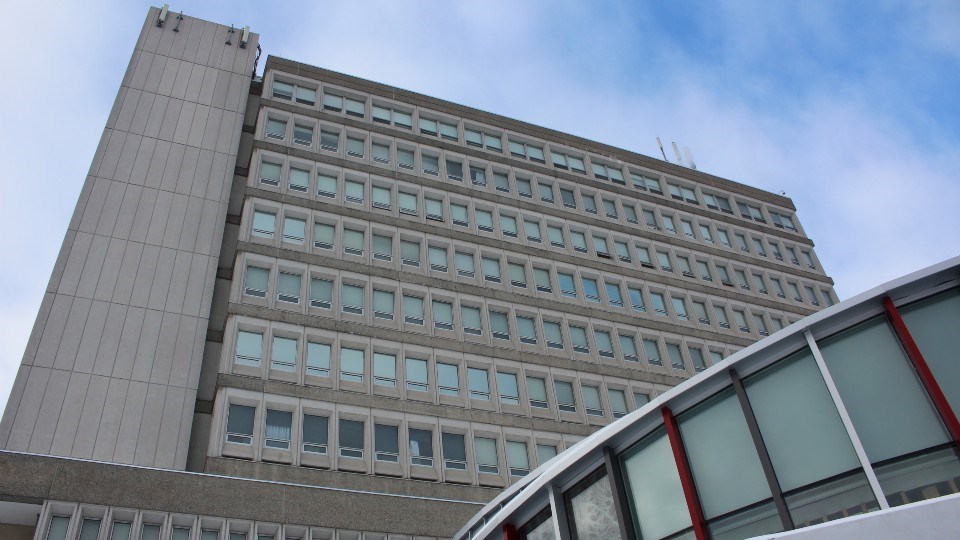A judge has rejected arguments by a lawyer who sought the court’s leave to have the stay of proceedings lifted so Laurentian University could be named as a defendant in a $5-million lawsuit related to an alleged historic sexual assault.
Laurentian is still currently under creditor protection under the Companies’ Creditors Arrangement Act (or CCAA). While a business (or in this case a university) moves through the insolvency process, the rules under the CCAA prevent any legal claims being made against the insolvent entity while it restructures. This is what’s called “a stay of proceedings.”
According to documents filed before the courts, the woman, Barbara Robinson, alleges she was sexually abused by University of Sudbury religion professor John Sahadat in 1979 while a student there. Sahadat passed away in May 2021.
None of the allegations made by Robinson have been proven in court.
Although Sahadat was employed by the University of Sudbury, the woman's lawyer, Aron Zaltz, said the alleged abuse happened when Robinson was enrolled in Sahadat’s courses in her capacity as a Laurentian student, which he argues makes LU liable.
Robinson made a $5-million claim against Laurentian University regarding this matter through its insolvency claims process last summer, but the claim was disallowed.
Laurentian’s CCAA monitor rejected the claim because, it said, Sahadat wasn’t a Laurentian employee, so LU bore no responsibility for his actions, alleged or otherwise. She appealed that ruling, and her lawyer asked the courts to lift the stay of proceedings so Laurentian could be named as a defendant in the $5-million suit Robinson launched against the University of Sudbury, where Sahadat was employed at the time of the alleged assault.
As Zaltz explained in an email to Sudbury.com, “The objective was to put the claim before the Courts, where she will have access to the full truth-seeking powers of the Rules of Civil Procedure, rather than being confined to the summary claims procedure that LU has established for its creditors, without many of the rights that claimants in the Courts have as a result of the Rules of Civil Procedure.”
Once a stay is in place under the CCAA, it can only be lifted with the say-so of the court, or of the insolvent entity itself (or its court-appointed monitor).
To defend his point of view, Zaltz cited a certain section of the CCAA (section 19(2)(b)(i)), which he sees as a “carve out” in the legislation.This could allow an individual to access damages against a "debtor company" under the CCAA.
These damages would have to have been awarded by a court in civil proceedings related to "bodily harm intentionally inflicted, or sexual assault."
In this case, an award has not yet been awarded to his client, but Zaltz argued the section of the CCAA still applies. He said the issue had never before been tested before the courts.
The University of Sudbury also sought a lift of the stay of proceedings so that Laurentian can be added as a defendant in Robinson’s lawsuit against the U of S.
However, Chief Justice Geoffrey Morawetz, who heard the Barbara Robinson matter in April, has rejected Zaltz’s argument.
“In the absence of establishing an award of damages, the s. 19(2)(b)(i) exception is not triggered,” said Morawetz, in his May 27 written decision.
“There is no basis, in my view, to accept the Moving Parties argument that section s. 19(2)(b)(i) of the CCAA provides a basis to lift the stay of proceedings and to allow the claim of BR (Barbara Robinson) to proceed in ordinary litigation outside the Claims Process.
“In my view s. 19(2)(b)(i) does not provide an ‘exception’ to the Claims Process and does not provide a basis to lift the stay of proceedings.”Morawetz said he had concluded that the Barbara Robinson claim “is to be determined in the CCAA Claims Process, and accordingly the primary relief requested by (Barbara Robinson) is denied.”
However, he said while Robinson’s claim against Laurentian is to be determined within the claims process, it’s necessary to ensure the claim gets a “fair and proper adjudication.”
“I find it necessary that the parties make further submissions as to the appropriate process to adjudicate (Barbara Robinson’s) claim and the claim of (the University of Sudbury) within the claim process,” said Morawetz’s decision.
“To that end, the parties are to schedule a case conference before me, as soon as possible, so that these process issues can be addressed.”
In the wake of Morawetz’s decision, Zaltz provided us with the following brief emailed response: “The Chief Justice's reasons and directions articulate the integrity of federal insolvency law as a principled statutory scheme, and affirm the importance of process to adjudicative fairness within that scheme of justice.”
Heidi Ulrichsen is the associate content editor at Sudbury.com. She also covers education and the arts scene.
